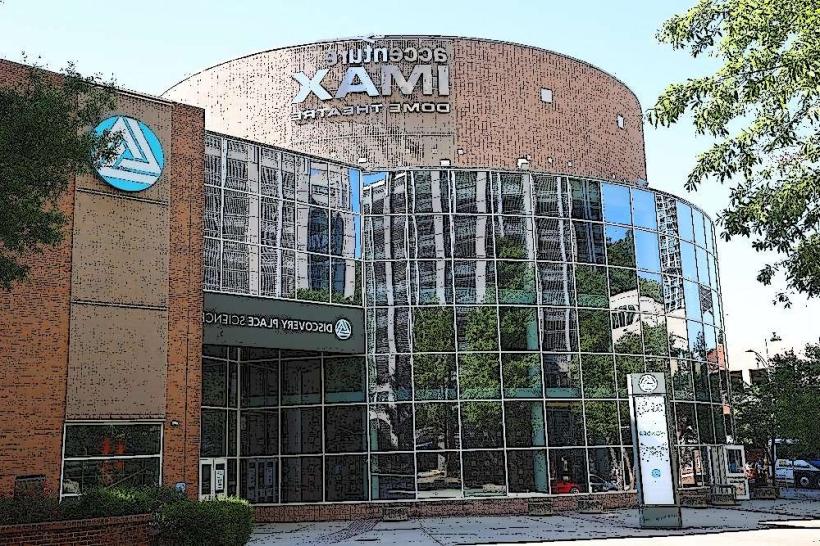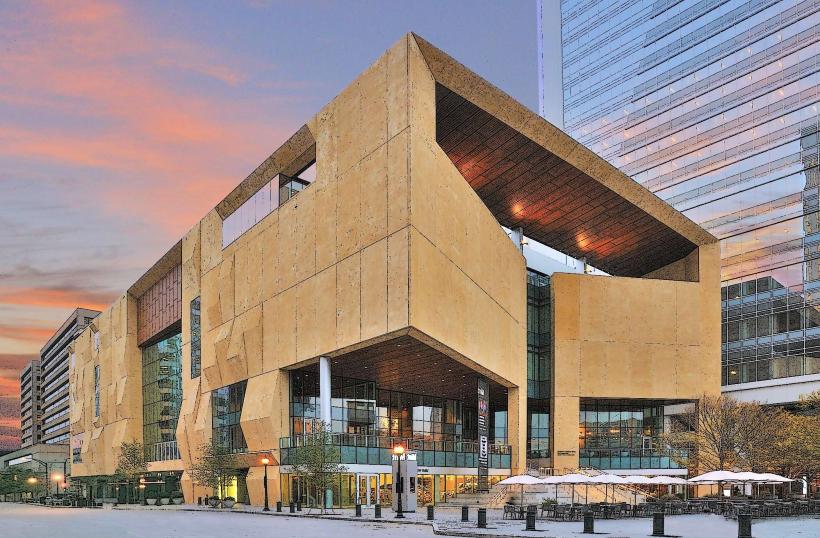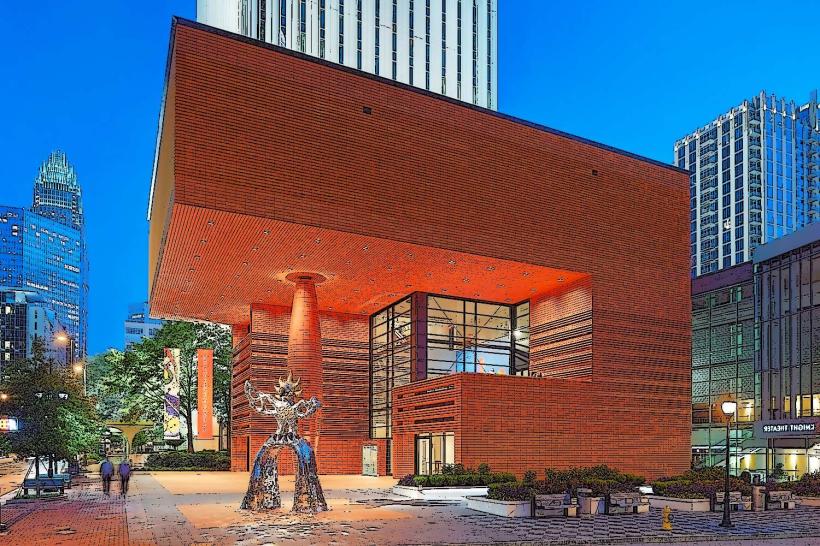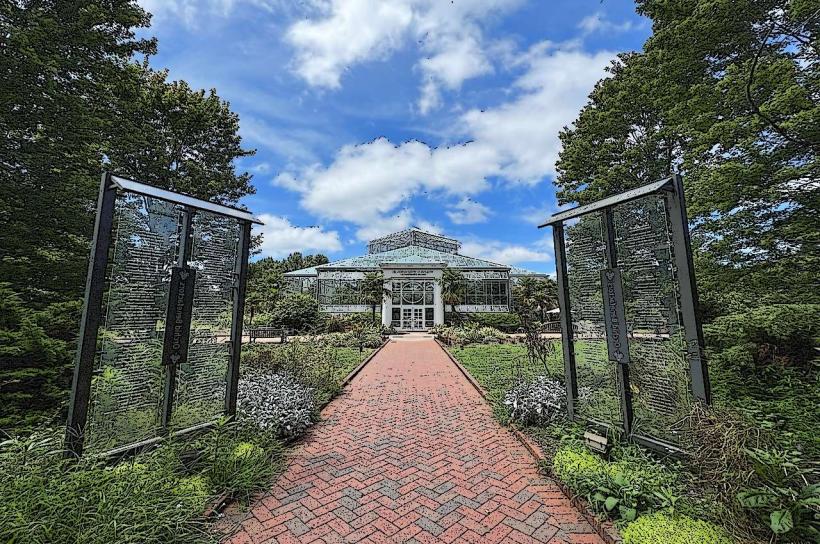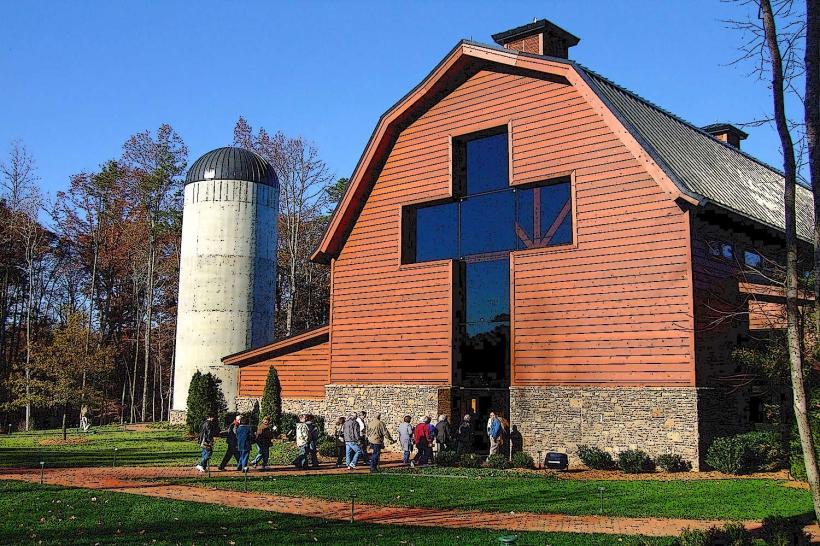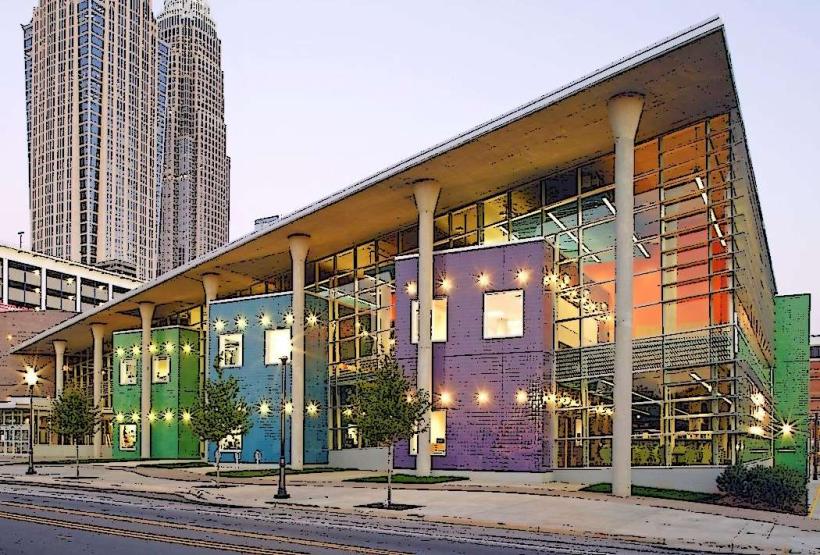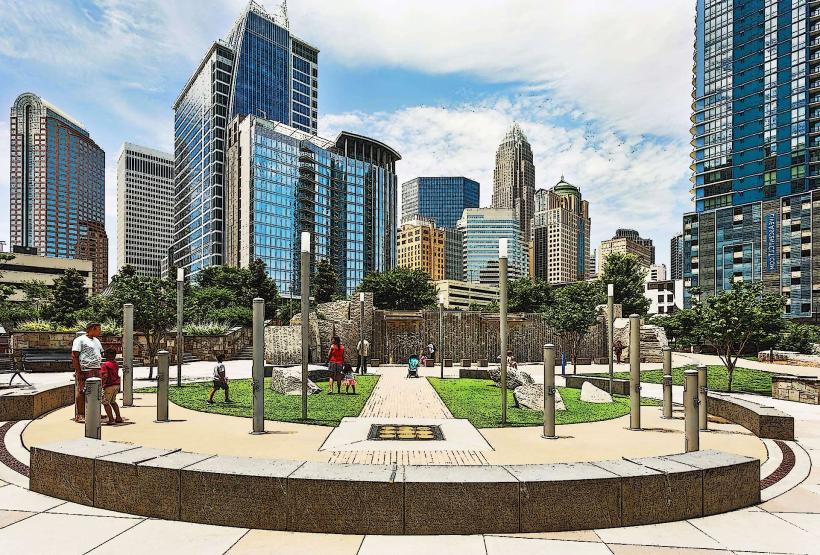Information
Landmark: Levine Museum of the New SouthCity: Charlotte
Country: USA North Carolina
Continent: North America
Levine Museum of the New South, Charlotte, USA North Carolina, North America
Peebles Island State Park is a 41-acre island located in the Hudson River, situated between the cities of Waterford and Cohoes, New York, adjacent to Albany.
Visual Characteristics
The park features a predominantly wooded landscape with mature deciduous trees. The island's perimeter is defined by the Hudson River's waters. A paved multi-use trail encircles the island. The park contains remnants of former industrial structures, including concrete foundations and brickwork.
Location & Access Logistics
Access to Peebles Island State Park is via the Waterford Bridge (NY-32) from Waterford, NY. The park entrance is located at 102 Vliet Street, Waterford, NY. Parking is available in a designated lot at the park entrance. There are no direct public transport routes to the island itself; visitors typically arrive by private vehicle.
Historical & Ecological Origin
Historically, the island was the site of the once-prominent Harmony Mills textile factory, which operated from the mid-19th century until the 1960s. The park was established to preserve the island and its riverfront access. Ecologically, the island is a riverine island ecosystem within the Hudson River watershed.
Key Highlights & Activities
Activities include walking and cycling on the paved perimeter trail. Fishing is permitted from designated areas along the riverbank. Birdwatching is a common activity due to the riparian habitat. Picnicking is available at designated sites.
Infrastructure & Amenities
Restrooms are available within the park. Picnic tables and grills are provided. Shade is available from the tree canopy. Cell phone signal (4G/5G) is generally available. There are no on-site food vendors; visitors should bring their own provisions.
Best Time to Visit
The best time for photography is during the early morning or late afternoon when the sun angle provides softer light. The months of May through October offer the most favorable weather conditions for outdoor activities. The park is accessible year-round, though winter conditions may affect trail usability.
Facts & Legends
A specific historical oddity is the presence of the large, well-preserved concrete foundations of the former Harmony Mills, which stand as a testament to the area's industrial past. The island's name is derived from the Peebles family, who were prominent landowners in the region.
Nearby Landmarks
- Cohoes Falls (1.5km Southwest)
- Waterford Harbor (1.0km West)
- Erie Canal Lock 7 (2.0km Northwest)
- Schuyler Mansion State Historic Site (Albany) (8.0km South)
- New York State Museum (Albany) (8.5km South)



